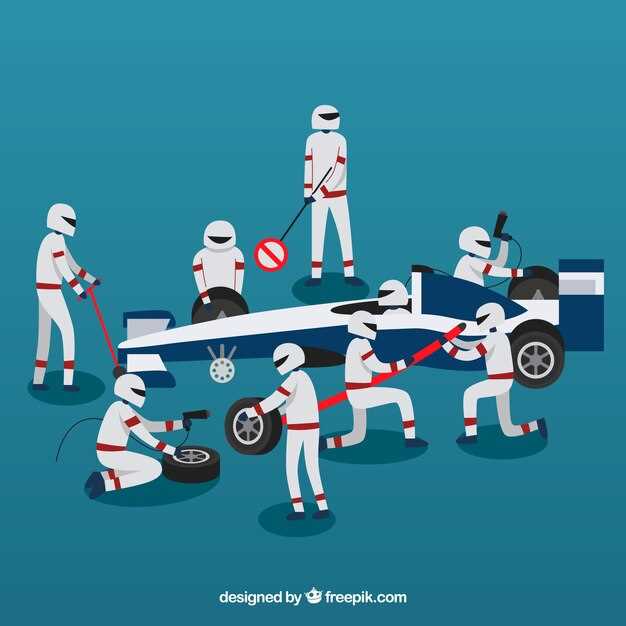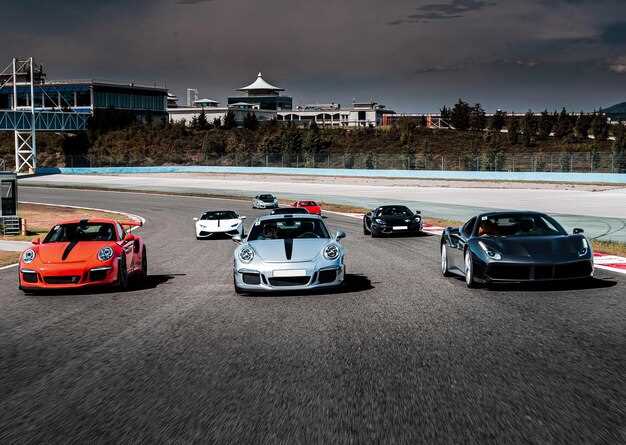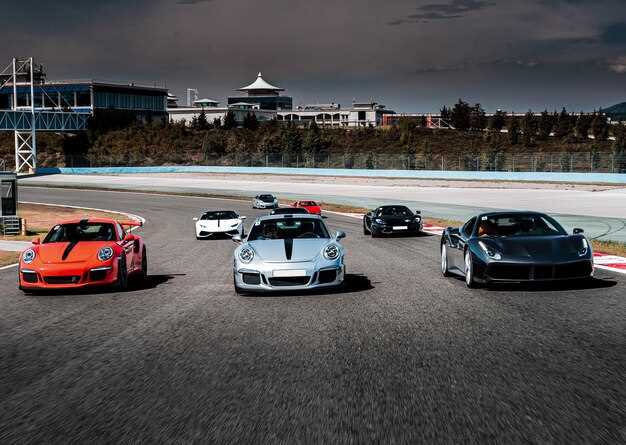
Porsche has played a pivotal role in shaping the landscape of global motorsports, making a significant mark in the world of endurance racing. Since its inception, the brand has become synonymous with high-performance vehicles that not only dominate racetracks but also capture the imagination of enthusiasts around the world. Its innovative engineering and relentless pursuit of excellence have set benchmarks that competitors strive to achieve.
The company’s achievements in endurance racing are particularly noteworthy, with a legacy that includes triumphs at prestigious events such as the 24 Hours of Le Mans. Porsche’s commitment to racing has not only propelled its own brand but has also contributed to advancements in automotive technology as a whole. Each victory is not just a testament to speed and skill; it reflects a deep-seated ethos of pushing boundaries and redefining what is possible in the realm of performance.
Moreover, Porsche’s influence extends beyond the racetrack, inspiring future generations of engineers, designers, and drivers. The lessons learned from its participation in racing competitions have led to innovations that filter down to consumer vehicles, demonstrating the brand’s dedication to fostering a synergy between competition and everyday driving experiences. Thus, Porsche’s legacy in motorsports continues to thrive, shaping the future of the automotive industry while celebrating the thrilling essence of endurance racing.
Key Innovations Introduced by Porsche in Endurance Racing
Porsche has significantly shaped the landscape of endurance racing through a series of groundbreaking innovations. One of the most notable advancements is the introduction of the flat-six engine, which provided a unique balance of power and weight distribution. This engine configuration not only enhanced performance but also allowed for lower center of gravity, enhancing handling during prolonged races.
Moreover, Porsche pioneered the use of turbocharging in endurance racing with the 917 model. This technology offered a remarkable boost in horsepower, enabling vehicles to achieve higher speeds without increasing engine size. The success of turbocharged engines was evident in multiple endurance championships, altering the strategy teams adopted in power management over long distances.
In the realm of materials, Porsche made strides by utilizing lightweight composites in car construction. This innovation reduced overall vehicle weight, leading to improved agility and fuel efficiency–crucial factors in endurance racing where every second counts.
The incorporation of aerodynamic advancements has also been a game-changer. Porsche’s development of active aerodynamics, especially seen in models like the 919 Hybrid, allowed for better downforce and reduced drag, optimizing performance on various track conditions.
Porsche’s focus on hybrid technology has revolutionized endurance racing. The hybrid systems in the 919 Hybrid not only improved performance but also promoted sustainability in motorsport, paving the way for future innovations in energy recovery and efficiency.
Finally, Porsche’s commitment to data analytics and telemetry has transformed race strategy. By leveraging real-time data, teams can make informed decisions that enhance tire management, fuel usage, and overall race tactics, making them formidable competitors in endurance racing.
Porsche’s Major Endurance Race Victories and Their Significance

Porsche has established itself as a dominant force in endurance racing, with numerous victories that have shaped the landscape of motorsport. The marque’s commitment to engineering excellence and innovative technology has led to remarkable achievements in prestigious events such as the 24 Hours of Le Mans, the 24 Hours of Daytona, and the Nürburgring 24 Hours.
The 24 Hours of Le Mans, one of the most challenging endurance races in the world, has witnessed Porsche’s supremacy since the early 1970s. The brand earned its first overall victory in 1970 with the Porsche 917, setting new benchmarks for speed and reliability. This victory not only solidified Porsche’s reputation but also paved the way for subsequent successes, including a record 19 overall wins through the 2010s. These achievements underscored Porsche’s unwavering dedication to performance in extreme conditions.
In addition to Le Mans, Porsche’s victories at the 24 Hours of Daytona have further elevated its status in the endurance racing community. The Porsche 935, which dominated in the late 1970s, showcased the brand’s ability to adapt and innovate, featuring advanced aerodynamics and turbocharging techniques. Wins at Daytona added to the versatility of Porsche’s engineering prowess, highlighting its capacity to excel on various racing platforms.
The Nürburgring 24 Hours serves as a testament to Porsche’s engineering capabilities and the durability of its vehicles. With multiple victories in this grueling race, Porsche has shown its commitment to performance under extreme conditions. The skills honed in these endurance events have not only influenced the development of road cars but have also reinforced Porsche’s brand identity as a maker of high-performance vehicles.
Overall, Porsche’s major endurance race victories represent more than just accolades; they reflect a legacy of innovation, reliability, and resilience. These successes have significantly shaped global motorsports history, influencing competitors and aspiring manufacturers while demonstrating the importance of endurance racing in advancing automotive technology.
The Evolution of Porsche’s Race Cars: From the 917 to the 919 Hybrid

Porsche’s journey in motorsports is marked by innovation and performance, with each race car representing a pivotal moment in the evolution of racing technology. The Porsche 917, introduced in 1969, revolutionized endurance racing. It featured a lightweight design and a powerful flat-12 engine, enabling it to achieve incredible speeds on the track. The 917 became legendary, securing Porsche’s first overall victory at the 24 Hours of Le Mans in 1970, a feat that solidified its place in racing history.
Transitioning into the 21st century, Porsche embraced advancements in hybrid technology with the introduction of the Porsche 919 Hybrid in 2014. This prototype combined a turbocharged V4 engine with an innovative hybrid system, showcasing Porsche’s commitment to sustainability and performance. The 919 Hybrid not only dominated the FIA World Endurance Championship, winning multiple titles, but also paved the way for future developments in eco-friendly racing.
Both the 917 and 919 symbolize Porsche’s relentless pursuit of excellence in racing. While the 917 epitomized the raw power necessary for endurance events, the 919 Hybrid demonstrated that performance and efficiency could coexist. These two models reflect the brand’s evolution, illustrating how Porsche continuously adapts to the changing landscape of motorsports while maintaining its core values of engineering and innovation.




